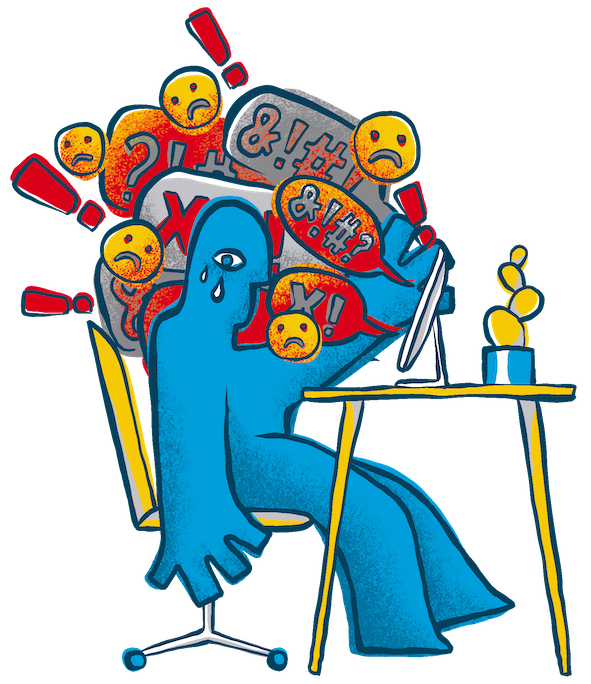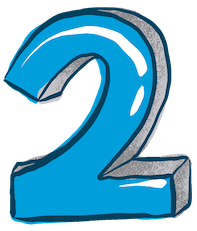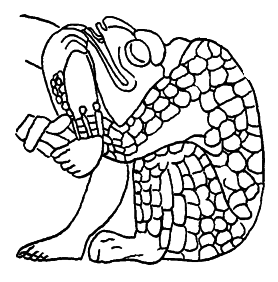ヘイトスピーチ
Hate speech

What
is hate speech? (UN)より
ヘイトスピーチ
Hate speech

What
is hate speech? (UN)より
ヘイトスピーチ、嫌悪スピーチ(Hate speech)とは、人種、
出身国、出自、民族、宗教、性的指向、性別、容姿、障害など、本人に帰属する属性——本質的属性という——に対して、公衆の面前で口頭により、攻撃、威
嚇、侮辱するなどの行為——言葉を発しなくてもジェスチャーでも起こり得る——と言動のことである。また、インターネットのSNSなどで、ヘイト表現を書
き込む行為や、それをシェアなどで流布させる行為もヘイト行為のなかに分類される。
近代国家の多くの法律では、公衆の面前でのヘイト スーピーチ言動、インターネットで多くのひとが無差別・無条件に閲覧できる環境での書き込みなどを禁じており、その本人に対する過料などの刑罰や、そのよ うなことを許したデモの主催者やネット掲載会社に対して、謝罪や掲載取り消しを命じることができるとしている。
スペイン語ウィキペディアでは「憎悪言説(Discurso de odio︎)」 と言われ次のように定義している;"El discurso de odio (en inglés: hate speech)? es la acción comunicativa que tiene como objetivo promover y alimentar un dogma, cargado de connotaciones discriminatorias, que atenta contra la dignidad de un grupo de individuos.1 Dicho discurso es propagado con intención maligna1 para incitar al interlocutor, o lector, a que lleve a cabo acciones destructivas en contra de un grupo, por lo general, históricamente discriminado.1"
梁英聖(량 영성・リャン・ヨンソン)や樋口直人が言うように「日本型ヘイトスピーチ」や「日本型排外主義」のように、レイシズムや社会的排除にも、その文化や社会が 動員するステレオタイプがるように、ヘイトにも文化的パターンというものがある可能性もある。
そして、現在、世界的広がりをもって展開している「ソーシャルメディア」も(とても便利で有
益なこともあるものの、一方では)ヘイトスピーチを蔓延させる原因にもなっている。
国連での説明は次のようになっている, https://www.un.org/en/hate-speech/understanding-hate-speech/what-is-hate-speech?
| What is hate speech? |
ヘイトスピーチってなに? |
| In common language, “hate
speech” refers to offensive discourse targeting a group or an
individual based on inherent characteristics (such as race, religion or
gender) and that may threaten social peace. There is no universal definition of hate speech under international human rights law. The concept is still widely disputed, especially in relation to freedom of opinion and expression, non-discrimination and equality. To provide a unified framework for the United Nations to address the issue globally, the UN Strategy and Plan of Action on Hate Speech defines hate speech as…“any kind of communication in speech, writing or behaviour, that attacks or uses pejorative or discriminatory language with reference to a person or a group on the basis of who they are, in other words, based on their religion, ethnicity, nationality, race, colour, descent, gender or other identity factor.” |
一般的に「ヘイトスピーチ」とは、固有の特性(人種、宗教、性別など)
に基づいて集団や個人を標的にし、社会的平和を脅かすような攻撃的な言説を指します。 国際人権法上、ヘイトスピーチの普遍的な定義はありません。特に意見・表現の自由、非差別、平等との関係で、この概念にはまだ大きな異論がある。 国連がこの問題に世界的に取り組むための統一的な枠組みを提供するために、「ヘイトスピーチに関する国連戦略および行動計画」は、ヘイトスピーチを... 「ある人物またはある集団を、その人物が誰であるかを根拠として、言い換えれば、宗教、民族、国籍、人種、色、世系、性別またはその他の識別要素に基づい て攻撃したり卑下的または差別的言語を使用する、スピーチ、文書、行動におけるあらゆる種類のコミュニケーション」と定義している。 |
| While the above is not a legal
definition and is broader than “incitement to discrimination, hostility
or violence” – which is prohibited under international human rights law
-- it has three important attributes: |
上記は法的な定義ではなく、国際人権法で禁止されている「差別、敵意、
暴力の扇動」よりも広範なものであるが、(次の)3つの重要な属性を持っている。 |
 Hate
speech can be conveyed through any form of expression, including
images, cartoons, memes, objects, gestures and symbols and it can be
disseminated offline or online. Hate
speech can be conveyed through any form of expression, including
images, cartoons, memes, objects, gestures and symbols and it can be
disseminated offline or online. |
 ヘイトスピーチは、画像、漫画、ミーム、オブジェクト、ジェスチャー、シンボルなど、あらゆる表現形式を通じて伝えられる可
能性があり、オフラインまたはオンラインで広められる可能性がある。 ヘイトスピーチは、画像、漫画、ミーム、オブジェクト、ジェスチャー、シンボルなど、あらゆる表現形式を通じて伝えられる可
能性があり、オフラインまたはオンラインで広められる可能性がある。 |
 Hate
speech is “discriminatory” (biased, bigoted or intolerant) or
“pejorative” (prejudiced, contemptuous or demeaning) of an individual
or group. Hate
speech is “discriminatory” (biased, bigoted or intolerant) or
“pejorative” (prejudiced, contemptuous or demeaning) of an individual
or group. |
 ヘイトスピーチとは、個人や集団に対する「差別的」(偏見、偏屈、不寛容)または「蔑視的」(偏見、軽蔑、卑下)な言動のこ
とである。 ヘイトスピーチとは、個人や集団に対する「差別的」(偏見、偏屈、不寛容)または「蔑視的」(偏見、軽蔑、卑下)な言動のこ
とである。 |
 Hate
speech calls out real or perceived “identity factors” of an individual
or a group, including: “religion, ethnicity, nationality, race, colour,
descent, gender,” but also characteristics such as language, economic
or social origin, disability, health status, or sexual orientation,
among many others. Hate
speech calls out real or perceived “identity factors” of an individual
or a group, including: “religion, ethnicity, nationality, race, colour,
descent, gender,” but also characteristics such as language, economic
or social origin, disability, health status, or sexual orientation,
among many others. |
 ヘ
イトスピーチは、個人または集団の現実または認識されている「アイデンティティ要因」を呼び起こすもので、次のようなものがある。「宗教、民族、国籍、人
種、肌の色、家系、性別」だけでなく、言語、経済的または社会的出身、障害、健康状態、性的指向など、さまざまな特徴を含んでいる。 ヘ
イトスピーチは、個人または集団の現実または認識されている「アイデンティティ要因」を呼び起こすもので、次のようなものがある。「宗教、民族、国籍、人
種、肌の色、家系、性別」だけでなく、言語、経済的または社会的出身、障害、健康状態、性的指向など、さまざまな特徴を含んでいる。 |
| It’s important to note that hate
speech can only be directed at individuals or groups of individuals. It
does not include communication about States and their offices, symbols
or public officials, nor about religious leaders or tenets of faith. |
ヘイトスピーチは、個人または個人のグループにのみ向けることができる
ことに留意することが重要である。国家やその役職、シンボル、公務員、宗教指導者や信仰の教義に関するコミュニケーションは含まれない。 |
| "Social media provides a global
megaphone for hate.” ANTÓNIO GUTERRES, United Nations Secretary-General, 2021 |
"ソーシャルメディアは憎しみのためのグローバルなメガホンを提供して
います" アントニオ・グテレス(ANTÓNIO GUTERRES)国際連合事務総長、2021年 |
| Misinformation spreads faster
when we’re upset. Pause and #TakeCareBeforeYouShare. |
あ
なたの感情を、デマに乗っ取られないように(TW 動画) |
| The growth of hateful content
online has been coupled with the rise of easily shareable
disinformation enabled by digital tools. This raises unprecedented
challenges for our societies as governments struggle to enforce
national laws in the virtual world's scale and speed. Unlike in traditional media, online hate speech can be produced and shared easily, at low cost and anonymously. It has the potential to reach a global and diverse audience in real time. The relative permanence of hateful online content is also problematic, as it can resurface and (re)gain popularity over time. Understanding and monitoring hate speech across diverse online communities and platforms is key to shaping new responses. But efforts are often stunted by the sheer scale of the phenomenon, the technological limitations of automated monitoring systems and the lack of transparency of online companies. Meanwhile, the growing weaponization of social media to spread hateful and divisive narratives has been aided by online corporations’ algorithms. This has intensified the stigma vulnerable communities face and exposed the fragility of our democracies worldwide. It has raised scrutiny on Internet players and sparked questions about their role and responsibility in inflicting real world harm. As a result, some States have started holding Internet companies accountable for moderating and removing content considered to be against the law, raising concerns about limitations on freedom of speech and censorship. Despite these challenges, the United Nations and many other actors are exploring ways of countering hate speech. These include initiatives to promote greater media and information literacy among online users while ensuring the right to freedom of expression. |
オンライン上の憎悪に満ちたコンテンツの増加は、デジタルツールによっ
て可能になった簡単に共有できる偽情報の台頭と相俟っている。このことは、政府がバーチャルな世界の規模とスピードの中で国内法を施行することに苦慮して
いる私たちの社会に、前例のない課題を提起しています。 従来のメディアとは異なり、オンライン上のヘイトスピーチは、低コストで、匿名で、簡単に作成・共有することができます。また、グローバルで多様なオー ディエンスにリアルタイムで届く可能性があります。また、憎悪に満ちたオンラインコンテンツは、時間の経過とともに再浮上し、(再び)人気を集めることが できるため、比較的永続的であることも問題です。 多様なオンラインコミュニティやプラットフォームにおけるヘイトスピーチを理解し、監視することは、新たな対応を形成する上で重要な鍵となります。しか し、現象の大きさ、自動監視システムの技術的限界、オンライン企業の透明性の欠如により、その取り組みはしばしば阻まれます。 一方、憎悪と分裂をもたらす物語を広めるために、ソーシャルメディアの武器化が進んでいることは、オンライン企業のアルゴリズムによって助長されていま す。このことは、脆弱なコミュニティが直面するスティグマを強化し、世界中の民主主義のもろさを露呈しています。また、インターネット利用者に対する監視 の目が厳しくなり、現実世界に被害をもたらすインターネット利用者の役割と責任に疑問を投げかけるようになりました。その結果、一部の国はインターネット 企業に対し、法律に反すると見なされるコンテンツの調整・削除について責任を問うようになり、言論の自由の制限や検閲に関する懸念が高まっています。 こうした課題にもかかわらず、国連をはじめとする多くの関係者は、ヘイトスピーチに対抗する方法を模索しています。これには、表現の自由の権利を確保しつ つ、オンラインユーザーのメディアおよび情報リテラシーを向上させるためのイニシアチブが含まれます。 |
| https://www.un.org/en/hate-speech/understanding-hate-speech/what-is-hate-speech? | https://www.deepl.com/ja/translator |
★日本の本屋さんや取次店がヘイトを助長する本をベストセラーに仕立て上げるという産業構造 化に加担するというのは、本好きの人間(=池田)にとってはとてもショックである。
出版案内「ヘイト本がつくりあげる「憎悪の棚」を直 視し、熱くもなければ、かっこよくもない、書店と出版の仕事の実像を明らかにする。仕事だからつくる。つくられたものは流通させる。配本が多いから書店は 平積みする。しくみに忠実な労働が「ヘイト本」を生み、そして、本屋の一角で憎悪を煽ることを“普通”のことにした―。すこし長いまえがき―不愉快な旅だ ちのまえに 1 ヘイト本が読者に届くまで(町の本屋のリアル―書店経営者座談会;チェーン書店―個人の意思だけでは決められない;出版取次―まったくの透明な装置; 出版社―「売れるから」と「売れなくても」;編集者―かなりの部分、仕事だからやっている;ライター―願望をなぞり、陰謀をほのめかす) 2 ヘイト本の現場を読み解く(川上から川下まで―出版界はアイヒマンか;書店への幻想―書店員は本を選べない;取次の岐路―いまのままでは維持できな い;出版社の欺瞞―だれも責任をとらない;ネットと本とマスメディア―刷りこまれる嫌悪感) すこし長いあとがき―変わらなければ、滅ぶだけ。永江朗[ナガエアキラ] 1958年生まれ。ライター。書籍輸入販売会社のニューアート西武(アールヴィヴァン)を経て、フリーの編集者兼ライターに。90~93年、「宝島」「別 冊宝島」編集部に在籍。その後はライター専業」https://www.kinokuniya.co.jp/f/dsg-01-9784811808390
Hate Media as a Crime against Humanity. While the hate speech promoted by these type of media can be prosecuted differently under the national laws of several countries, because of its proven ability to contribute to and incite genocide the use of hate media in order to foment the cleansing of a particular national, ethnic, racial or religious group in whole or in part can be prosecuted under international law for incitement to genocide. Incitement to Genocide was declared a crime against humanity under the Nuremberg Trials. Nevertheless under the laws of Nuremberg only hate media propaganda which calls for direct extermination is considered a crime against humanity. After the crimes committed in former Yugoslavia and Rwanda this definition was modified and a new definition was provided for the Rwandan tribunals. According to this definition, hate media propaganda considered to be a crime against humanity must be involved in the direct and indirect incitement of genocide which "must be defined as directly provoking the perpetrator(s) to commit genocide, whether through speeches shouting or threats uttered in public spaces or at public gatherings or through the sale or dissemination of ... written material or printed matter ... or through the public display of placards or posters, or through another means of audiovisual communication".- https://en.wikipedia.org/wiki/Hate_media
人道に対する罪としてのヘイトメディア。この種のメ ディアによって促進されるヘイトスピーチは、いくつかの国の国内法で異なる形で訴追される可能性があるが、大量虐殺に貢献し扇動することが証明されている ため、特定の国家、民族、人種、宗教集団の全体または一部の浄化を扇動するためにヘイトメディアを使用すると、国際法の下で大量虐殺扇動として訴追される 可能性がある。ジェノサイドの扇動は、ニュルンベルク裁判のもとで人道に対する罪とされた。とはいえ、ニュルンベルク法の下では、直接の絶滅を呼びかける ヘイトメディアのプロパガンダだけが人道に対する罪とされている。旧ユーゴスラビアとルワンダで行われた犯罪の後、この定義は修正され、ルワンダ裁判のた めに新しい定義が提供された。この定義によれば、人道に対する罪とみなされるヘイトメディアプロパガンダは、大量虐殺の直接・間接的扇動に関与していなけ ればならない。それは、「公共空間や公的集会で発せられる演説、叫び、脅迫、...文書や印刷物の販売や普及、プラカードやポスターの公開、あるいは視聴 覚コミュニケーションの別の手段を通じて、加害者を大量虐殺するように直接に挑発すると定義しなければならない」のである(https://www.deepl.com/ja/translatorに よる上掲の翻訳)。
●用語集です
【社会的排除】「social exclusion: 個人または集団が社会から排除され不利益な状態におかれている状態。社会的周縁化ともいう:Social exclusion or social marginalisation is the social disadvantage and relegation to the fringe of society.」
【社会的包摂】「social inclusion:市民ひとりひとりが包摂されている状態。より具体的には、市民の市民ひとりひとりが排 除や摩擦、孤独や孤立から解放されて、かつ援護されて地域社会の一員として取り込まれている(求められる是正的)状態のことをさす。また、アイデンティ ティの違いによって不利な立場に置かれている人々が、社会に参加するための能力、機会、価値を向上させるプロセスであると、世銀はそのように述べてい る。:Social inclusion, the converse of social exclusion, is affirmative action to change the circumstances and habits that lead to (or have led to) social exclusion. As the World Bank states, social inclusion is the process of improving the ability, opportunity, and worthiness of people, disadvantaged on the basis of their identity, to take part in society.」
以上の所見から、ヘイトスピーチは、ヘイトアクショ
ンは、人種差別と同様に、人間の本源的な感情(from human's primordial
sentiment)から由来する自然な言動や活動ではなく、意識的/無意識的に人々の間に形成、学習された偏見であり、また、そのような偏見は忘却され
たり否認されたりする外部からの圧力に抵抗して、意図的にそれを再生産する社会構造に支えられている。つまり、同じ考えを有する人たちのSNSを利用した
り、集会になどに参加して、異質な人たちを人為的に認定し、それに関する情動を再確認して、ヘイト感情を維持するような社会的構築物(=ヘイトスピーチ・
コミュニティ)の裏付けにより保障されていることがわかる。
リンク(さくせいちゅう)
文献
その他の情報
Copyleft, CC, Mitzub'ixi Quq Chi'j, 1996-2099
